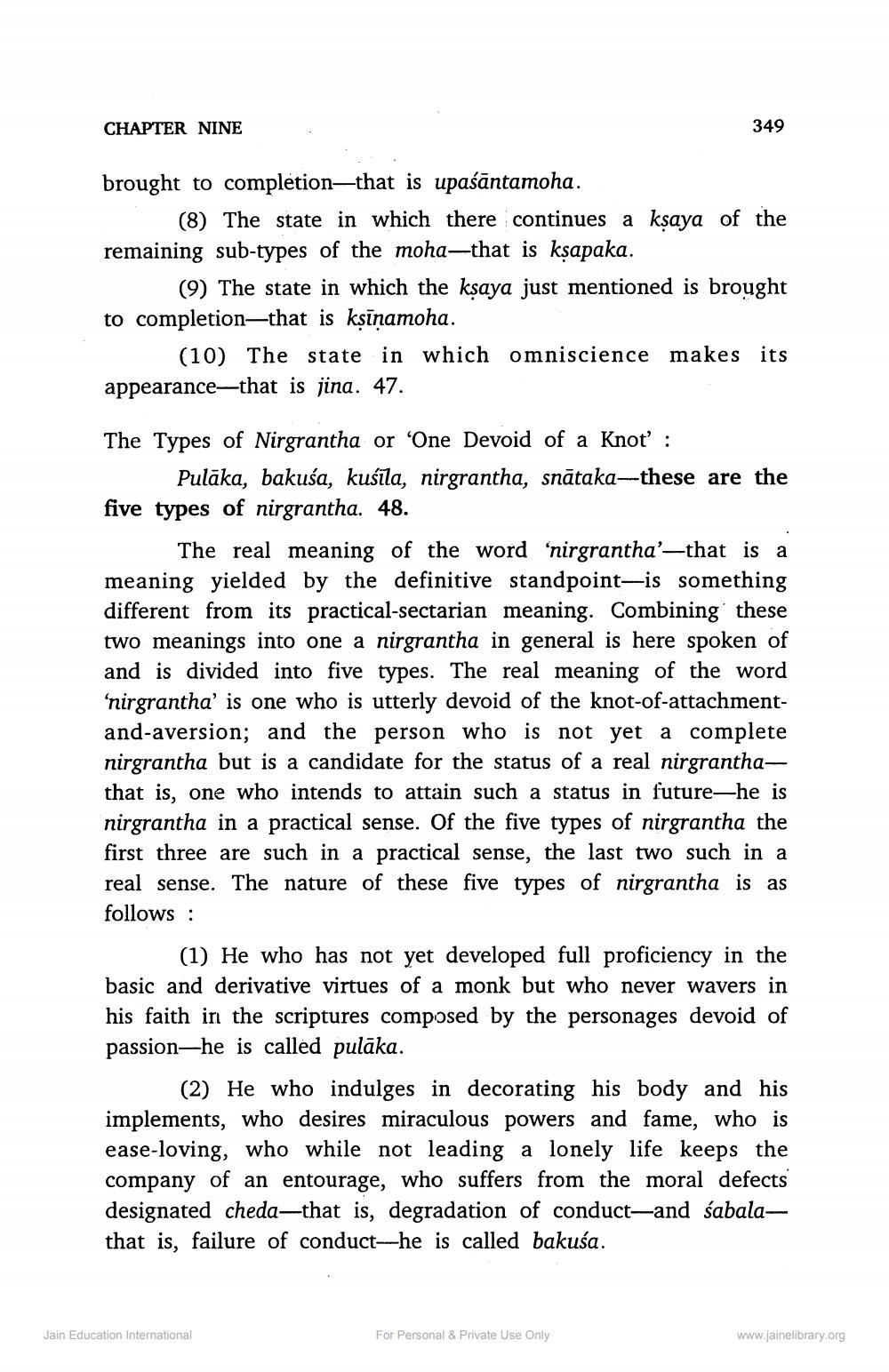________________
CHAPTER NINE
349
brought to completion—that is upaśāntamoha.
(8) The state in which there continues a kşaya of the remaining sub-types of the moha—that is kşapaka.
(9) The state in which the kşaya just mentioned is brought to completion—that is kşīņamoha.
(10) The state in which omniscience makes its appearance that is jina. 47.
The Types of Nirgrantha or 'One Devoid of a Knot' :
Pulāka, bakuśa, kuśīla, nirgrantha, snātaka-these are the five types of nirgrantha. 48.
The real meaning of the word 'nirgrantha'—that is a meaning yielded by the definitive standpoint—is something different from its practical-sectarian meaning. Combining these two meanings into one a nirgrantha in general is here spoken of and is divided into five types. The real meaning of the word ‘nirgrantha' is one who is utterly devoid of the knot-of-attachmentand-aversion; and the person who is not yet a complete nirgrantha but is a candidate for the status of a real nirgranthathat is, one who intends to attain such a status in future—he is nirgrantha in a practical sense. Of the five types of nirgrantha the first three are such in a practical sense, the last two such in a real sense. The nature of these five types of nirgrantha is as follows:
(1) He who has not yet developed full proficiency in the basic and derivative virtues of a monk but who never wavers in his faith in the scriptures composed by the personages devoid of passion—he is called pulāka.
(2) He who indulges in decorating his body and his implements, who desires miraculous powers and fame, who is ease-loving, who while not leading a lonely life keeps the company of an entourage, who suffers from the moral defects designated cheda—that is, degradation of conduct—and sabalathat is, failure of conduct-he is called bakuśa.
Jain Education International
For Personal & Private Use Only
www.jainelibrary.org




